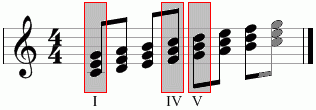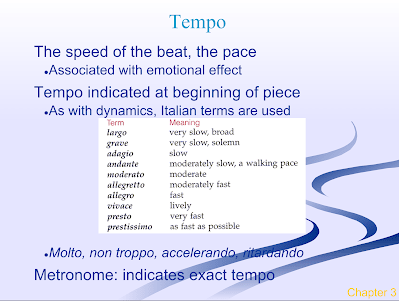
Music calendar – May
May gave fans of classical music several big names of composers and performers whose work has remained for centuries. Among them: P. Tchaikovsky, I. Brahms, A. Lyadov, V. Sofronitsky, R. Wagner. Several interesting premieres took place this month, among which are the debuts of W. Mozart’s opera Le nozze di Figaro and L. Beethoven’s 9th symphony.
Composers who pushed the boundaries of their time
2 May 1660 years born in Palermo, Italy Alessandro Scarlatti. There are enough white spots in his biography. But one thing is undeniable – this composer became the founder of the largest Neapolitan opera school at the end of the 120th century. The size of his creative heritage is striking. Scarlatti alone wrote more than 600 operas. And more than 200 cantatas, about XNUMX masses, madrigals, oratorios, motets. Among the students are the son of the composer Domenico Scarlatti, well known to young pianists for his sonatinas; Francesco Durante, author of church music, young Georg Friedrich Handel.
7 May 1833 years was born Johannes Brahms, R. Schumann’s successor in German musical romanticism. Working in the heyday of new genres of theatrical and program music, the composer proved with his work the viability of classical forms, enriched by the attitude of a modern artist. The peaks of Brahms’s work were 4 symphonies, reflecting different aspects of his worldview.
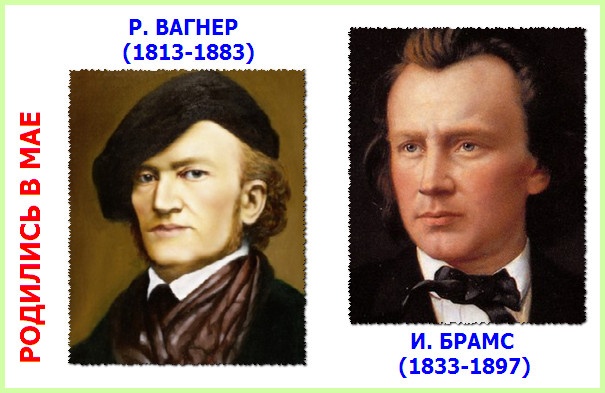
In the same day, 7 May 1840 years the greatest composer, teacher, conductor, educator in the history of world musical art came to the world – Peter Ilyich Tchaikovsky. He saw his task in art in a truthful and sincere conversation with the audience about the problems that concern them. The constant daily work on the creation of music was the whole meaning of his life.
The path of the composer was not easy, his parents wanted to see him as a lawyer and the young man was forced to obey their will and receive an appropriate education. But his soul aspired to music, and Tchaikovsky left the service for the sake of a career as a composer. The maestro is an innovator in the field of ballet. He put ballet music on a par with the masterpieces of opera and symphonic art, proving that it can be not only applied in nature (accompany dance). His ballets and operas do not leave the world theatrical stage.
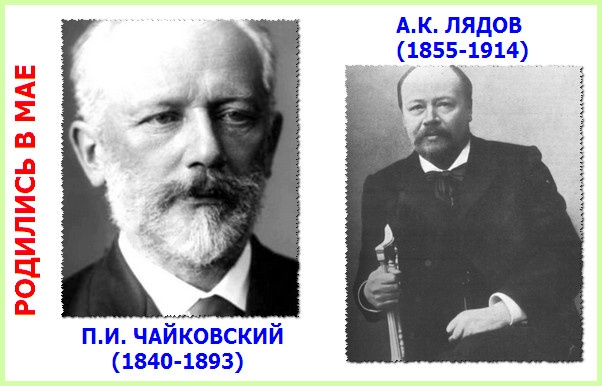
11 May 1855 years a representative of the younger generation of Russian composers was born – Anatoly Lyadov. At the heart of his work is Russian folklore. His works are characterized by subtle contemplative lyrics, a masterful depiction of nature, and an organic interspersing of genre elements. The main thing for him was a combination of casual elegance and genre harmony. Among his best works are the orchestral miniatures “Kikimora” and “Baba Yaga”, the epic ballad “About Antiquity”, arrangements of folk songs. Lyadov also showed himself as a talented teacher. His students were B. Asafiev, S. Prokofiev, N. Myaskovsky.
15 May 1567 years the brightest representative of the Renaissance was born, Claudio Monteverdi. He, like no one at that time, was able to express the tragedy of life in opera, to reveal the depth of human characters. Monteverdi rejected the rules imposed by the environment and believed that music should follow the dictates of the heart, and not get entangled in conventions. The greatest popularity of the composer brought the production in 1607 in Mantua of the opera “Orpheus”.
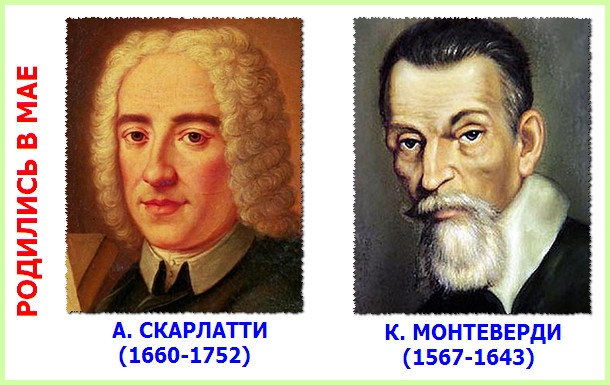
22 May 1813 years the largest reformer of the opera genre came to the world Richard Wagner. His early operas are a tribute to tradition. The impetus for rethinking the genre was the revolutionary events in Europe in the middle of the XNUMXth century. Wagner revised his artistic views and outlined them in several theoretical works. They found a musical embodiment in the tetralogy “Ring of the Nibelung”.
Master virtuosos
1 May 1873 years a bright representative of the Russian pianistic school was born Konstantin Igumnov. Listeners noted his special attitude to the piano and to performance, as if he was conducting a dialogue with the listener. Igumnov is one of those performers who did not pursue external effects, but made the piano sing.
As a teacher, Igumnov was strict with his students. He taught them artistic truth, naturalness in execution, economy and proportion in the means used. Both in his playing and in the performance of his students, he achieved softness, melodiousness of sound, relief plastic phrasing.
8 May 1901 years Petersburg, another outstanding pianist was born – Vladimir Sofronitsky. This performer is unique, it cannot be compared with any of his colleagues. His pianistic interpretations were compared with Vrubel’s paintings, Blok’s poems, and Green’s books. Critics noted that Sofronitsky’s performance is “musical hypnosis”, an extremely frank confession of the artist.
Vladimir Sofronitsky – Absolute Pitch
The pianist loved small chamber halls, “his” audience. He did not tolerate stereotyped, stereotyped performance. Sofronitsky studied his programs carefully, for a long time. Even in repetitive compositions, he managed to achieve a different sound.
Premieres
May 1, 1786 at the Vienna “Burgtheater” was the premiere of the beloved by millions of fans of the opera, owned by W. Mozart, “The Marriage of Figaro”. This work has set a kind of record: it is the oldest work that is constantly in the repertoire of all the leading opera houses in the world.
On May 7, 1824, in Vienna, at the Carinthian Gate Theater, the premiere of L. Beethoven’s 9th symphony took place. Despite the fact that there were few rehearsals, and the score was poorly learned, the performance made a splash. And although Beethoven himself could not conduct due to complete hearing loss, he stood in the corner of the stage and showed the bandmaster I. Umlauf the tempo of each movement. In order for the composer to see what delight the audience experienced, the audience threw headscarves and hats up, many cried. Only the intervention of the police could calm the public. From an overabundance of emotions, Beethoven lost his senses.
L. Beethoven – Symphony No. 9 – stills from the film “Rewriting Beethoven”
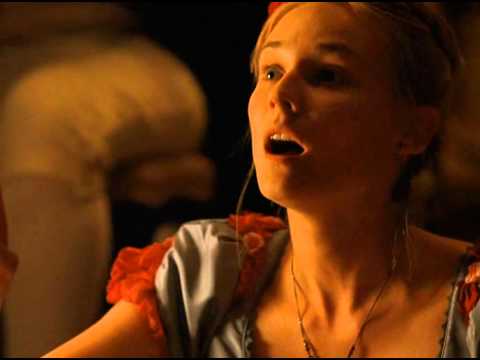

Watch this video on YouTube
Author – Victoria Denisova




